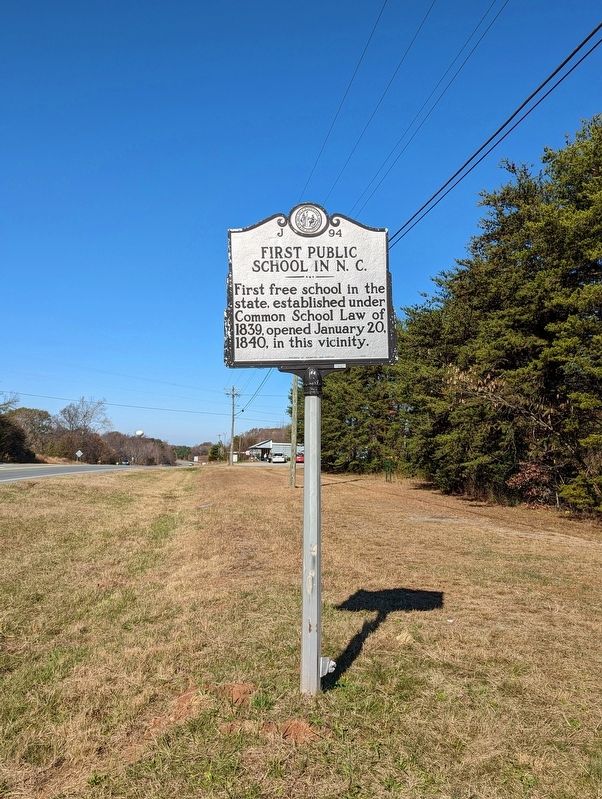For decades, reformers had been calling for free public education in North Carolina. In 1839, the General Assembly, now under Whig control, passed the North Carolina Public School Act. The act established primary schools, today called elementary schools. Students attended these schools for only a few years to learn reading, writing and arithmetic. The act followed many of the recommendations put forward by Archibald Murphey in 1817. Each county was to provide half of the funds to run a public school, and the state would contribute the rest of the money.
Since counties were responsible for raising part of the money, the proposed legislation had to be ratified, or accepted, by a majority of people in the county. The legislation was put to the people in the election of 1839, and was ratified by all but seven counties — Columbus, Davidson, Edgecombe, Lincoln, Warren, Wayne, and Yancey. In many counties it was ratified by an overwhelming vote, demonstrating that by the 1840s there was finally widespread public support to provide free education in North Carolina.
By 1850, there would be more than 2,500 public school in North Carolina. The schools served both boys and girls, though only white students — black children would not be served by public education until after the Civil War.
Rockingham County and Common Schools
The first free school in Rockingham county went into operation on the 20th of January 1840. This is probably the first free school commenced in the State. The entire county has been surveyed into districts, 8 miles long, and 4½ wide; two school Houses to be created in each. In a short time all the Houses will be completed and schools in operation in every district in the County. It is but sheer justice to Messrs. Thomas S. Gallaway Nathan Wright Thomas B. Wheeler Robert W. Lawson, John L. Lesures Mecajah McGehee, Rawley Gallaway E. T. Broduax, Joel Fagg and James Currie, who constitute the school supreintendancy [sic] for Rockingham, to state that great credit is due them for the very able and zealous manner in which they have performed their duties. -- Messrs. J. G. Wright and E. W. Hancock, surveyors, are also entitled to much credit for the part they have taken in the matter.
